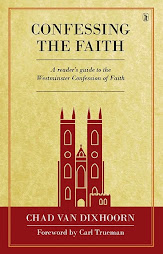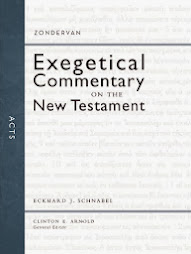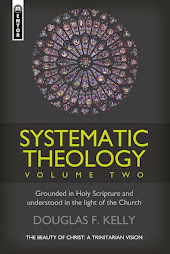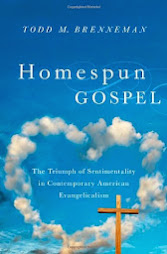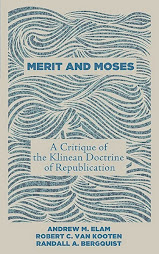"Is the Bible Inerrant?"by Professor John Frame
Quite a few people have suggested that "inerrant" is not a good word to use in describing Scripture. This article is designed to respond to that objection. Before we take up the specific term "inerrant," however, it will be well for us to remind ourselves, in more general terms, of what the Reformed faith and the Bible itself teach us about Scripture.
First, Scripture is the covenant constitution of the people of God.
1 The first written Word of God, the first Bible, was the Ten Commandments, written by the very finger of God on tables of stone (Ex. 24:12, 31:18, 32:15f, 34:1). In it, God speaks as the author of the document: "I am the Lord your God." That written Word was put in the holiest place in Israel, beside the Ark of the Covenant, where it was to stand as God's witness against Israel (Deut. 31:26).
2 As such, the written Word was to govern every aspect of the lives of God's people (Deut. 4:1-14, 5:32-6:25).
3 Nearly every chapter in Deuteronomy urges the people to obey all the laws, testimonies, statutes, commandments, and words... (such eloquent redundancy!) of God's written Word. Nearly every verse of Psalm 119 calls God's people back to these statutes; revival in Israel is always a revival of obedience to (sometimes rediscovery of) the law.
Beyond the Decalogue, God gave other Words to his people. The song of Moses in Deut. 32 (see 31:19) is such a Word. Words of Joshua were later added (Josh. 24:25f). And God sent prophets; the very definition of a prophet was that he proclaimed God's Word, not words of his own devising (Deut. 18:18-20). Many of these prophecies were written down. Jesus regarded the whole Old Testament as God's written Word (Matt. 5:17-19, John 5:45, 10:33-36), as did the apostles (Rom. 15:4, II Tim. 3:16, II Pet. 1:21, Jas. 4:5, 11).
The New Testament is a New Covenant, and thus it involves the giving of divine Words (Matt. 7:24-27, Mark 8:38, John 6:68f, 12:47ff, 14:15, 21, 23f, 15:7, 10, 14, 17:6, 17, I John 2:3-5, 3:22, 5:2f, II John 6, I Tim. 6:3, Rev. 12:17, 14:12). Jesus himself wrote no books, but he provided for his apostles to speak and write for God (John 14:26, 15:26, 16:13, I Cor. 2:10-13, 4:1, 14:37, Gal. 1:1, 11f, 16, 2:2). By the Holy Spirit's witness and the content of the books themselves, Christians recognize the New Testament, as they do the Old, as God's book.
Thus the church has historically confessed that Scripture is the Word of God. It is God speaking to us. There are also human authors of Scripture, and the content of Scripture reflects their personalities, styles, and experiences. But the humanity of Scripture does not mean that Scripture has less authority than, say, the divine voice at Mount Sinai. The authority of Scripture is nothing less than the authority of God himself, as the passages cited earlier clearly demonstrate.
We have, therefore, no right to bring negative criticism against the Bible. As the Belgic Confession states, with the canonical books "there can be no quarrel at all," (Article 4), "we believe without a doubt all things contained in them..." (Article 5), and "the teaching is perfect and complete in all respects" (Article 7). When God speaks to us, we dare not criticize what he says. Our only recourse is to believe and to obey.
Now, what of inerrancy? Well, the inerrancy of Scripture is certainly implied in what I have said already, if we are permitted to take "inerrancy" in its normal, dictionary meaning. "Inerrant" simply means "without error," or "true" in the sense that we normally speak of true sentences, true doctrines, true accounts, true principles. Were God to speak to us in person, "directly," none of us would dare to charge him with error. Errors arise from ignorance or deceit; and our God is neither ignorant, nor is he a deceiver. Similarly, we dare not charge his written Word with error.
This is not a mere "modern" position. As we have seen, it is the position of Scripture itself. Augustine in the fifth century declared, "None of these (scriptural) authors has erred in any respect of writing." Infallibility
4 is affirmed in the Westminster Confession of Faith, Chapter 1 and in the Belgic Confession, Article 7.
Shall we speak today of biblical "inerrancy?" The term does, to be sure, produce confusion in some circles. Some theologians have gone far astray from the dictionary meaning of "inerrant." James Orr, for example, defined "inerrant" as "hard and fast literality in minute matters of historical, geographical, and scientific detail."
5 Well, if "inerrancy" requires literalism, then we should renounce inerrancy; for the Bible is not always to be interpreted literally. Certainly there are important questions of Bible interpretation that one bypasses if he accepts biblical inerrancy in this sense.
But we should remember that Orr's use of the term, and the similar uses of contemporary theologians, are distortions of its meaning. Perhaps those distortions have become so frequent today as to inhibit the usefulness of the term. For the time being, however, I would like to keep the term, and explain to people who question me that I am not using it in Orr's sense, but rather to confess the historic faith of the church.
We do have a problem here: Other things being equal, I would prefer to drop all extra-scriptural terms including "infallible" and "inerrant" and simply speak, as Scripture does, of God's Word being true. That's all we mean, after all, when we say Scripture is inerrant. But modern theologians won't let me do that. They redefine "truth" so that it refers to some big theological notion
6 , and they will not permit me to use it as meaning "correctness" or "accuracy" or "reliability." So I try the word "infallible," a historical expression that, as I indicated in a footnote above, is actually a stronger term than "inerrancy." But again, modern theologians
7 insist on redefining that word also, so that it actually says less than "inerrancy."
Now what is our alternative? Even "accuracy" and "reliability" have been distorted by theological pre-emption. "Correctness" seems too trivial to express what we want to say. So, although the term is overly technical and subject to some misunderstanding, I intend to keep the word "inerrant" as a description of God's Word, and I hope that my readers will do the same. The idea, of course, is more important than the word. If I can find better language that expresses the biblical doctrine to modern hearers, I will be happy to use that and drop "inerrancy." But at this moment, "inerrancy" has no adequate replacement. To drop the term in the present situation, then, can involve compromising the doctrine, and that we dare not do. God will not accept or tolerate negative human judgments concerning his holy Word. So I conclude: yes, the Bible is inerrant.
1. Some will be pleased to see that I am not arguing as a "fundamentalist" ala the fundamentalist movement of the early 20th century, but very much in the Reformed tradition, expounding the implications of God's covenant with us. Others will not. 2. It is not men's witness to God, as theologians often suggest, but God's witness against men. 3. For more on the concept of Scripture as covenant constitution, see M. G. Kline, The Structure of Biblical Authority (Grand Rapids: Eerdmans, 1972). This is a very important, though much neglected study. 4. If we are permitted, again, to use the dictionary — and why shouldn't theologians use the dictionary!? — "infallible" is a stronger term than "inerrant." "Inerrant" means there are no errors; "infallible" means there can be no errors. 5. Orr, "Revelation and Inspiration," in Millard Erickson, ed., The Living God (Grand Rapids: Baker, 1973), p. 245. 6. Emil Brunner's "Truth as Encounter." 7. e.g. J. Rogers and D. McKim, in The Authority and Interpretation of the Bible (San Francisco: Harper and Row, 1979).













.jpg)




















